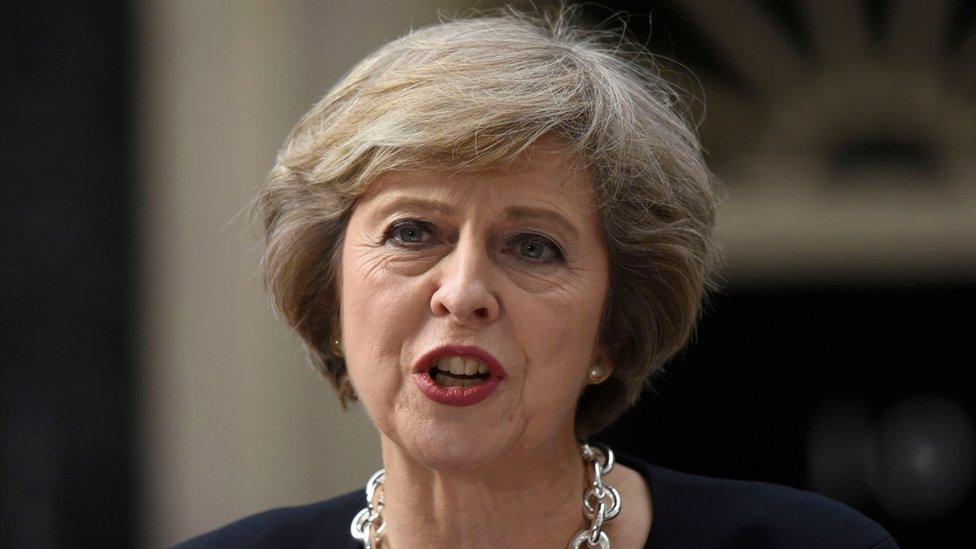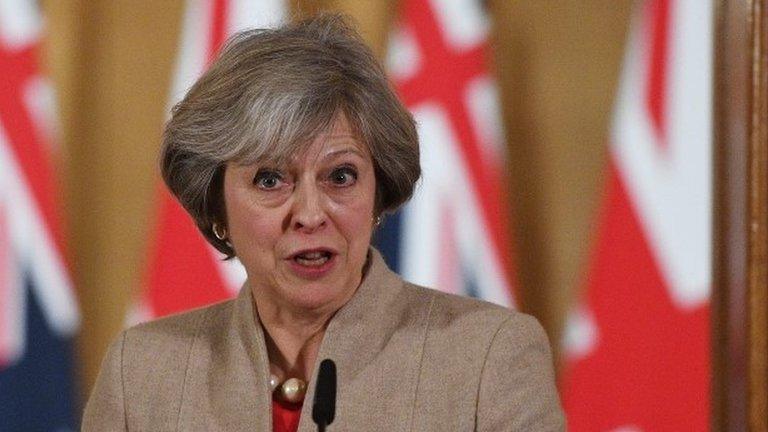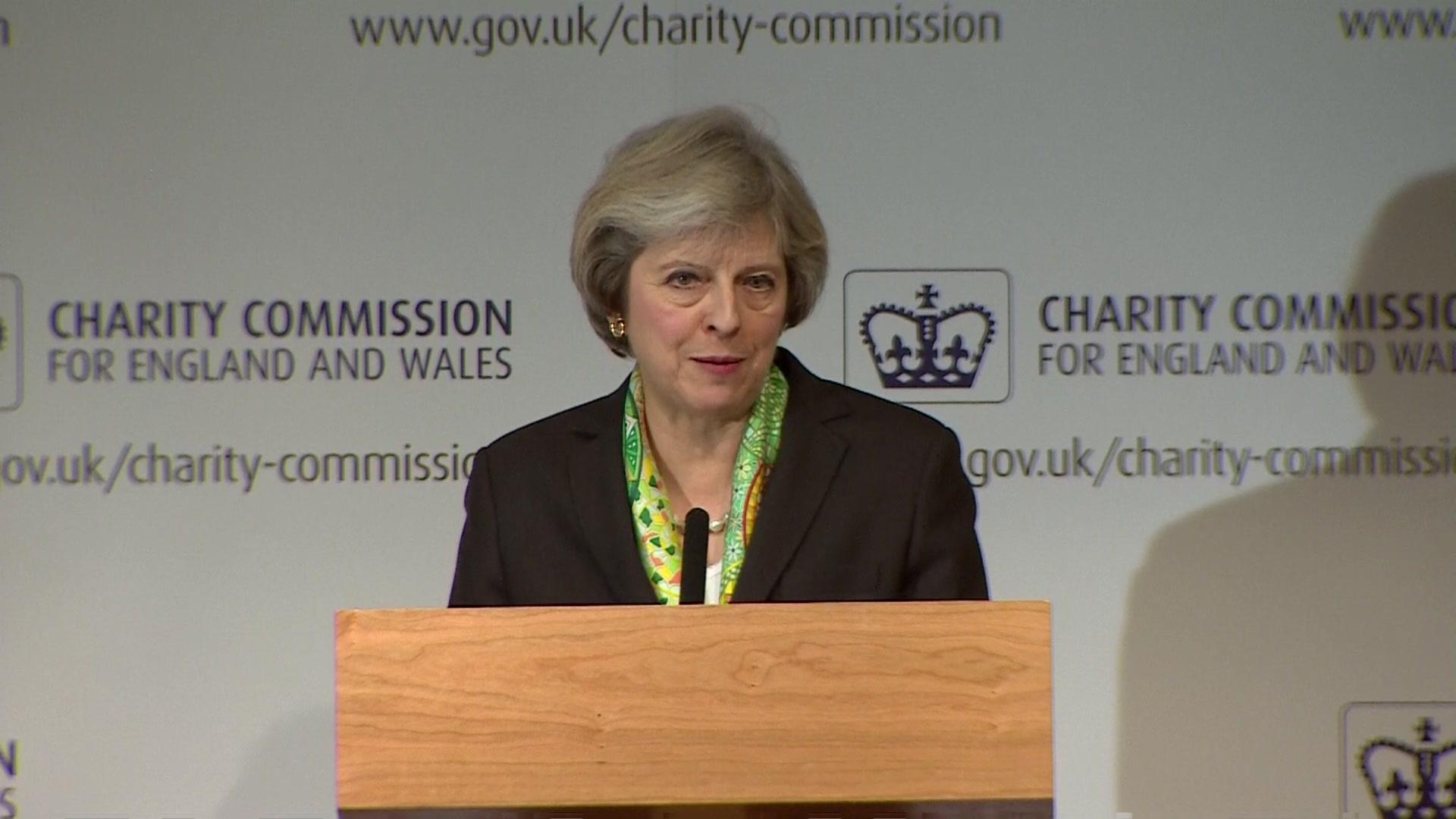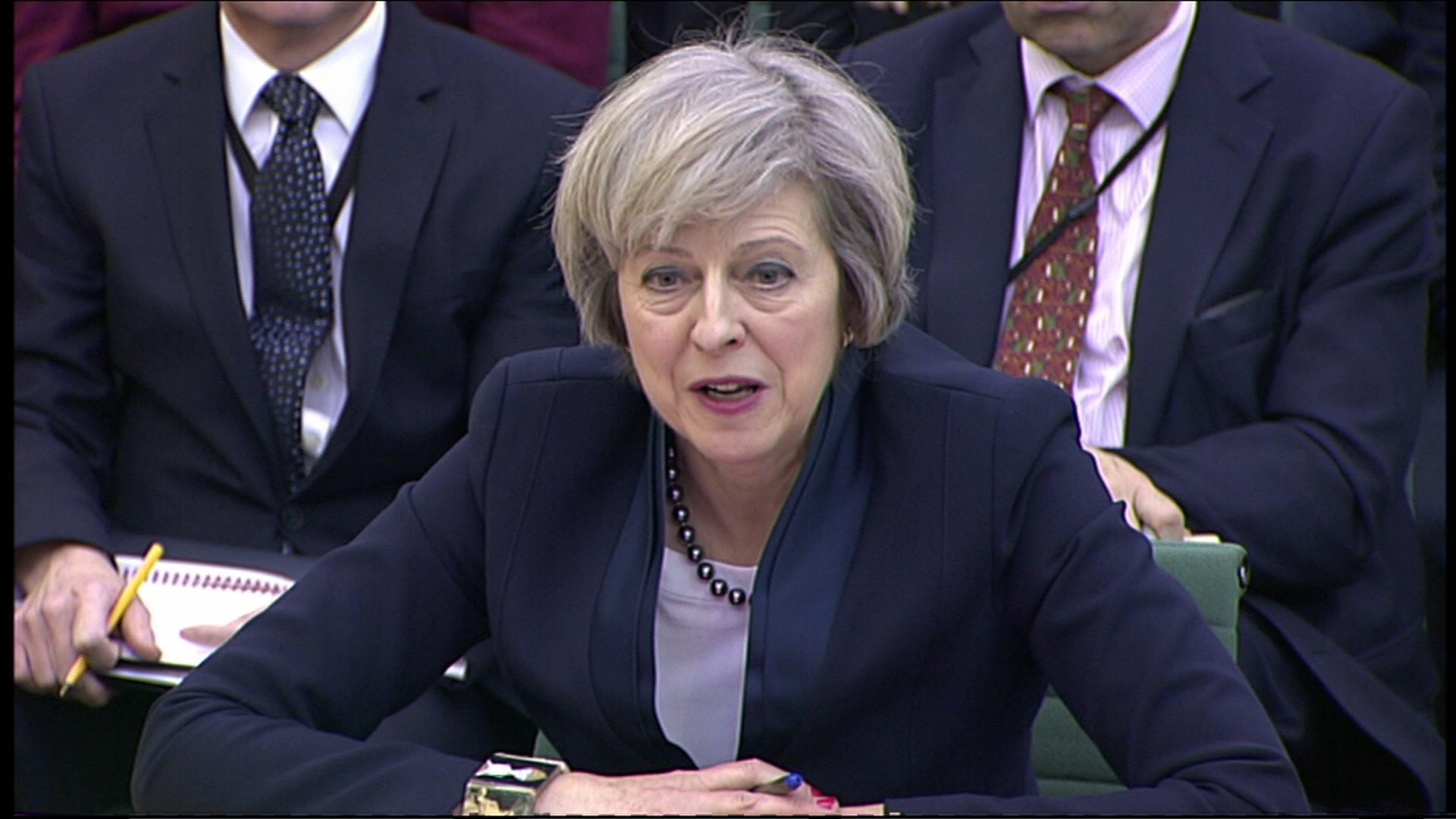PM to reveal 'global Britain' Brexit plan
- Published

The prime minister will call for a "global Britain" in her speech on the government's Brexit plan
Theresa May is expected to reveal the most detailed insight yet into her approach to Brexit negotiations, in a speech on Tuesday.
She will urge people to give up on "insults" and "division" and unite to build a "global Britain".
Downing Street said reports she may signal pulling out of the single market and customs union were "speculation".
It comes as the chancellor said the UK could "change its economic model" if it loses access to the single market.
The BBC's political correspondent, Chris Mason, said Downing Street was confirming little about precisely what Mrs May would say in her Brexit plan speech, but "a possible route map the prime minister could be preparing to follow is emerging".
Her desire to control immigration suggested giving up the UK's existing membership of the single market, he added, while her enthusiasm for trade deals with countries such as New Zealand implied leaving the customs union.
Several of Sunday's newspapers claim Mrs May will indicate she is prepared to outline a "hard Brexit" approach.
The Sunday Telegraph, external quoted a government source as saying: "She's gone for the full works. People will know when she said 'Brexit means Brexit', she really meant it."
In her speech, the prime minister is expected to call on the country to "put an end to the division" created by the EU referendum result.
She will urge the UK to leave behind words such as "Leaver and Remainer and all the accompanying insults and unite to make a success of Brexit and build a truly global Britain".
'Strong new partnership'
Mrs May is also expected to outline a commitment to building a Britain more open to the rest of the world while building a new relationship with EU countries.
On Friday, she met New Zealand's prime minister Bill English who said he wanted to negotiate a "high quality" free trade agreement with the UK once it left the EU.
Mrs May said she was looking forward to starting talks on what she called a "bold" new trade deal between the two countries.
Writing in the Sunday Times, external, Brexit Secretary David Davis said the government needed to persuade EU allies that a "strong new partnership" with the UK would allow the EU to prosper.
He admitted agreeing new terms would be "testing" and suggested there might be a transitional arrangement to ensure Britain's exit was a smooth process.
However, Chancellor Philip Hammond told the German newspaper Welt am Sonntag, external he hoped Britain would remain a European-style economy with corresponding tax and regulation systems.
But he said the UK could be "forced to be something different" if it was "closed off" from the single market, suggesting corporation tax could be lowered to "regain competitiveness".
'Disservice to the UK'
MPs have urged the prime minister to spell out whether she wants the UK to remain in the single market and customs union before Brexit talks begin.
Labour's shadow Brexit secretary Keir Starmer said businesses and trade unions wanted to retain full access to the single market and called on Mrs May to explain how a bespoke trade deal would work.
Writing in the Observer, external, he said: "The government must be open enough to provide robust impact assessments of leaving the single market or the customs union, including region-by-region and sector-by-sector analysis."
Labour leader Jeremy Corbyn has previously said he supports "reasonable management" of immigration but insists it must be set against continued access to European markets for British businesses.
Conservative MP and former education secretary Nicky Morgan, who supported remaining in the EU, said "maximum participation" in the single market should be a key factor in the Brexit negotiating strategy.
"The government will be doing a disservice to the country and to both Leave and Remain voters if it dogmatically pursues a hard, destructive Brexit where immigration control is the be all and end all, our economy is undermined, and people are left poorer," she added.
Liberal Democrat leader Tim Farron has said the party would vote against Article 50 unless the British people were given a referendum on the final Brexit deal.
- Published14 January 2017

- Published9 January 2017

- Published20 December 2016
